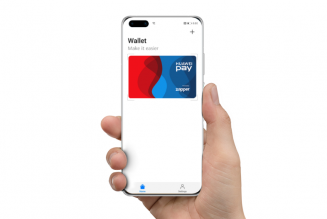When it comes to the world of work, 2020 will be remembered as a year that accelerated technological change. Forced out of their comfort zones, companies either adopted or more fully embraced technologies that they might have given short shrift to previously. Cloud computing is no exception.
According to the most recent “Cloud in Africa” report, cloud technology was vital in helping businesses manage the disruptions caused by the coronavirus pandemic. Among the most common uses of the cloud were disaster recovery (91%), remote working (82%) and customer service activities (52%).
Just a few years ago, they might not have been able to survive the storm in the same way. As recently as 2013, just 50% of businesses in South Africa, Kenya, and Nigeria were using some form of cloud computing. Today the number sits at 100%.
But with cloud now ubiquitous, what trends will emerge in 2021 and what impact will they have on enterprise-scale businesses?
-
Cloud’s growing role as a business enabler
The growing number of cloud-based applications available may bring increased security risks, but they also enable new ways of doing business. From accounting and payroll applications to office productivity suites, it’s possible to run much more of the business from the cloud than ever before.
As a result, businesses are much more capable of running remotely in a way that’s productive and meaningful. 2020 will have given businesses a taste of what cloud-based applications can do for their businesses. In 2021, the cloud’s role as an enabler will only grow stronger as organisations adopt it for more of their day-to-day functions.
-
Hybrid cloud comes to the fore
Hybrid cloud refers to mixed computing, storage, and services environment made up of on-premises infrastructure, private cloud services, and a public cloud—such as Amazon Web Services (AWS) or Microsoft Azure—with orchestration among the various platforms.
In 2021, more organisations will adopt this model. The speed, control, and enhanced security offered by the hybrid cloud make it attractive to enterprises. Additionally, a hybrid cloud offers high levels of customisation. That allows businesses to adapt on the fly, the importance of which became vividly apparent in 2020.
Hybrid cloud also offers the dual coverage of both private and public cloud security, making it the best available option in most instances.
-
Security becomes paramount
Security has always been a concern when it comes to the cloud. A proliferation of high-profile data breaches has only increased that concern. Additionally, with companies moving more and more applications to the cloud, the stakes of a breach are much higher than before. Where an organisation might previously have only used the cloud for backups, it’s now much more likely to use it for operational purposes.
With the average data breach costing R40-million, cloud providers will be under growing pressure to show that they can keep customer data safe, no matter what applications they offer.
-
Building bridges between providers
For most of cloud computing’s history, the big providers have taken a “walled garden” approach to their offerings. The sell was that they were one-stop shops that could look after all of an organisation’s cloud, data, and compute requirements.
But the rise of hybrid cloud outlined above and the specific requirements of different departments within a business means that’s no longer viable. Organisations increasingly need different cloud applications from different providers to talk to each other. The providers that thrive in 2021 won’t be the ones that keep their ecosystems closed but the ones which have bridges to other providers’ services.
-
Cloud meets AI, big data, and IoT
Over the past decade or so, artificial intelligence (AI)/machine learning, the Internet of Things (IoT) and big data have all grown in parallel with cloud computing. Increasingly, however, cloud computing is enabling these new technologies.
By merging cloud computing with IoT and big data, businesses can enhance production, get access to the critical data of their customers, and make better business decisions. When combined with AI, meanwhile, providers can make their cloud applications more functional for end-users. A good example of this is Salesforce’s Einstein, which offers the ability to capture customer data, making it easier to track and personalise customer relationships.
By Matt Wright, CTO of BlueSky










